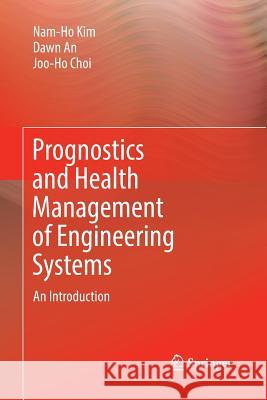Prognostics and Health Management of Engineering Systems: An Introduction » książka
topmenu
Prognostics and Health Management of Engineering Systems: An Introduction
ISBN-13: 9783319831268 / Angielski / Miękka / 2018 / 347 str.
Kategorie:
Kategorie BISAC:
Wydawca:
Springer
Język:
Angielski
ISBN-13:
9783319831268
Rok wydania:
2018
Wydanie:
Softcover Repri
Ilość stron:
347
Waga:
0.50 kg
Wymiary:
23.39 x 15.6 x 1.91
Oprawa:
Miękka
Wolumenów:
01
Dodatkowe informacje:
Wydanie ilustrowane











